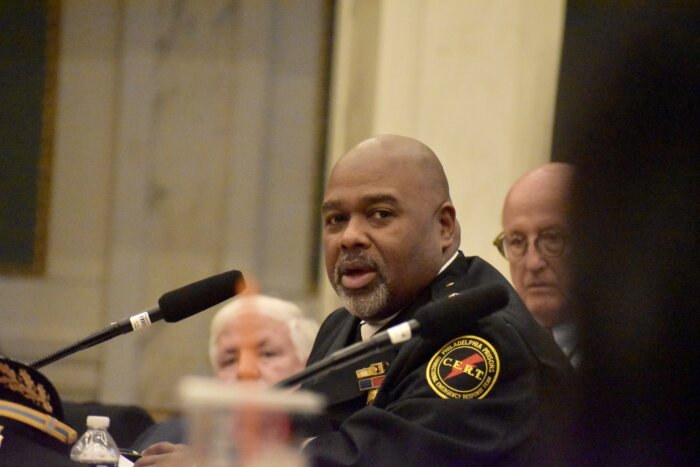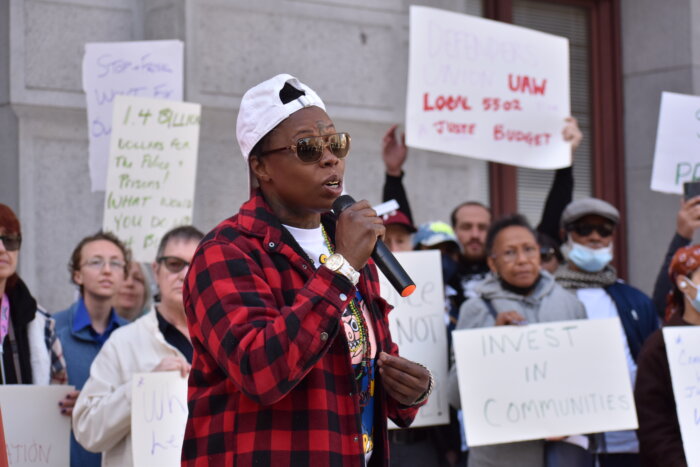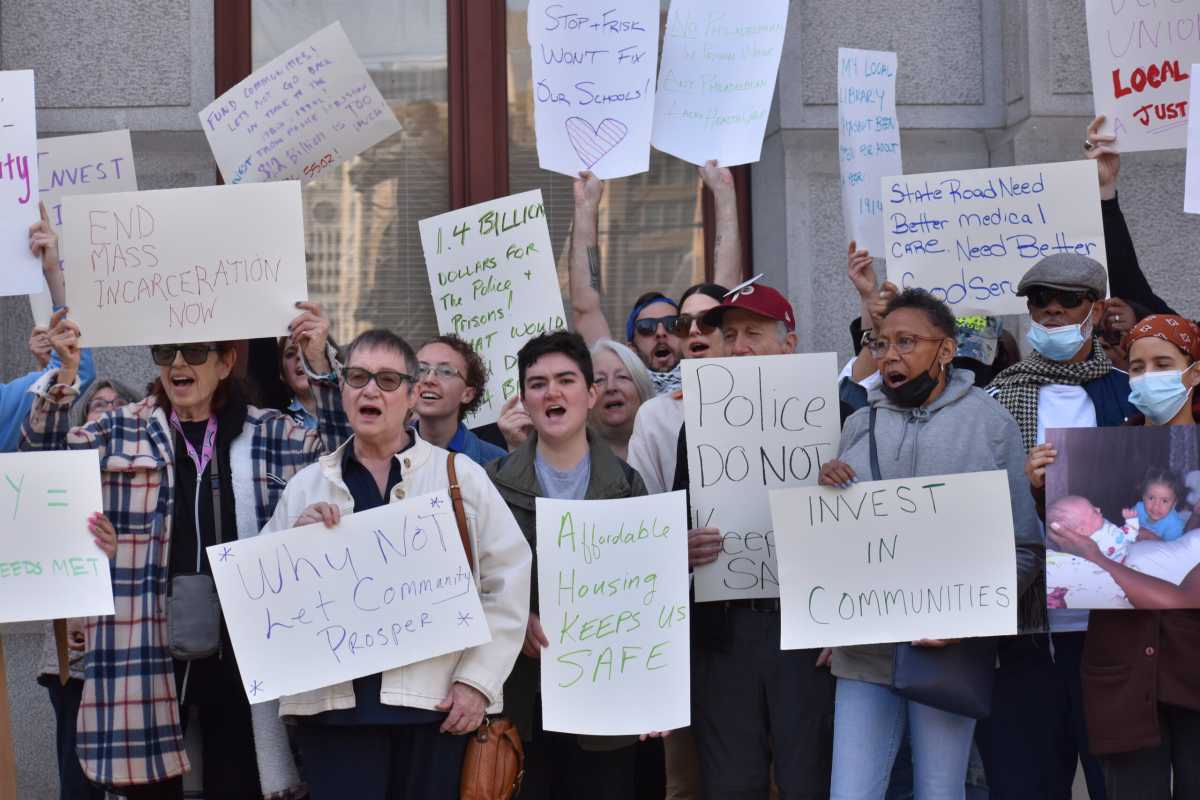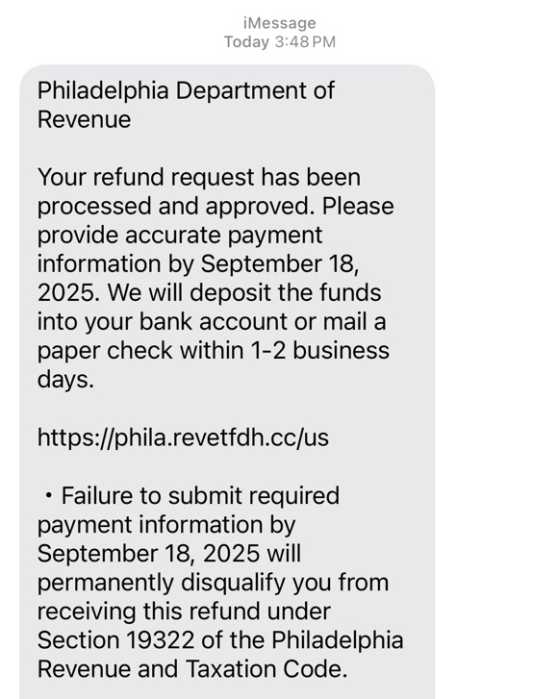Mayor Cherelle Parker’s new prisons commissioner is arriving at a crucial time for the city’s jail system, and she believes he can usher the department “into a new era of safety and stability.”
If the mayor’s vision comes to fruition, it would represent a dramatic turnaround for the Philadelphia Department of Prisons, which, in recent years, has been plagued by a profound staffing crisis, jail escapes, and violence, among other issues.
Michael Resnick, Parker’s pick to lead PDP, said during an introductory news conference last week that he is aware of the challenges.
“Essentially, we have too many inmates and not enough staff,” he said.

About 825 correctional officer positions are unfilled at PDP’s five jails along State Road in Northeast Philadelphia, equating to a vacancy rate of 48%, according to a court report filed March 29.
Retention is another hurdle. The court-appointed monitor wrote that, of the officers who graduated from the prison academy in 2022, only 40% were still employed as of late last year.
Over the course of 2023, the department’s security staffing decreased by 8%, while the inmate population rose 7%, the report found.
“Frequent staff assaults, fights, stabbings, rampant contraband and extortion, and security breaches have been made possible or exacerbated by the staffing shortage,” the monitor, Cathleen Beltz, wrote.
Beltz has been tracking PDP’s compliance with 18 stipulations included in a federal class-action settlement stemming from a 2020 lawsuit filed on behalf of inmates alleging inhumane conditions inside the prisons.
The settlement’s terms cover out-of-cell time, the use of isolation, deaths in custody, phone time, sanitation, access to the jail’s law library, and other aspects of prison life.
In her most recent report, Beltz, while noting that staffing shortages have been affecting law enforcement agencies nationwide, says that the city has not acted urgently enough to support PDP, instead opting for “a course of half measures steeped in bureaucratic and political rigidity.”
Attorneys for the incarcerated population, in response, last week asked a judge to find the city in contempt of court and assess daily fines of $5 per inmate. The money, which would total more than $20,000 a day, should be distributed to incarcerated people upon release, with the amount based on their length of stay, the lawyers argued.
Legal representation for the city and PDP has yet to respond to the motion.

Beltz has recommended convening criminal justice stakeholders to examine ways to reduce the prison population, specifically looking at ways to expedite the court process and pre-trial detention.
Resnick, who is replacing recently retired Prisons Commissioner Blanche Carney, spoke about the need to find ways to release inmates when possible, speed up the legal system and use diversionary programs to lower the population.
“It will take time and hard work, but I am committed to the challenge,” said Resnick, who previously oversaw Baltimore jails and served as acting Philadelphia prisons commissioner in 2016.
Deputy Prisons Commissioner Xavier Beaufort, testifying at a City Council budget hearing last week, said the jail system has no choice but to accept whoever is sent to State Road through the courts. Though nearly all of the inmates have not been convicted and are awaiting adjudication, the average length of incarceration at the city jails is more than 230 days, according to PDP budget documents.
Beaufort discussed working with judges, prosecutors and defense attorneys to go after the “low-hanging fruit” of releasing incarcerated individuals who are believed to pose a low threat to the community.
“The main thing is to staff up,” he told lawmakers, adding that PDP’s strategy is to reach pre-COVID employment levels.
Parker’s proposed budget allocates about $301 million to PDP, a nearly 3% increase over the amount approved last year but slightly less than the department anticipates actually spending ($302.8 million). PDP officials said the additional money this fiscal year was used to buy locks, equipment and supplies.

Just before the April 9 budget hearing, social justice advocates – including the Abolitionist Law Center, one of the parties involved in the class-action lawsuit – blasted Parker’s plan to increase prison and police funding, saying that money should go toward improving city services.
“Y’all gonna give the prisons that’s inadequate to actually do its job more money?” said Madusa Carter, an organizer with the Still We Rise Freedom Coalition. “They can’t even keep anybody. They can’t keep staff. It’s unsafe for the staff. It’s unsafe for folks who are in there. This is not making our community safe.”




























